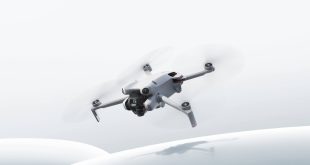The Future of AI: What Will It Mean to Be Human in a World of Smart Machines?
The rise of artificial intelligence (AI) is one of the most transformative technological shifts of the 21st century. From self-driving cars to virtual assistants, AI systems are becoming an integral part of our lives. They make decisions, process information, and perform tasks that were once exclusively human. As AI continues to advance, we are faced with important questions about its impact on society and, most profoundly, what it means to be human in an age dominated by smart machines. This blog explores the future of AI, the ethical challenges it presents, and how it will shape our humanity.
The Rise of Intelligent Machines
AI technology is advancing at a rapid pace, and it’s already reshaping industries around the world. At its core, AI is about creating machines that can think, learn, and adapt. From algorithms that can predict consumer behavior to robots performing surgery, AI is becoming more capable, more efficient, and more integrated into our daily lives.
Over the next few decades, we can expect AI to become even more sophisticated. Already, machine learning—an area of AI—allows systems to improve their performance as they process more data. This opens up possibilities for AI to tackle increasingly complex problems, from diagnosing medical conditions with pinpoint accuracy to managing the global economy.
The potential benefits of AI are staggering. AI-driven systems could revolutionize healthcare, enabling faster diagnoses and personalized treatments. In education, AI could tailor lessons to each student’s learning style, providing more effective and accessible teaching. In the workplace, AI could automate mundane tasks, freeing up human workers to focus on creative and strategic work.
However, these advancements also come with a host of challenges, many of which force us to reconsider what it means to be human.
The Blurring of Human and Machine
One of the most intriguing and thought-provoking aspects of AI is how it challenges traditional ideas of what it means to be human. As AI becomes more advanced, the line between human and machine begins to blur. Machines no longer just execute tasks; they can learn, adapt, and, in some cases, appear to demonstrate creativity.
In fields like art and literature, AI systems can now produce works that are indistinguishable from those created by humans. For example, AI-generated music and paintings have been showcased in galleries, and even news articles can be written by AI tools like GPT-3. This raises questions about the value of human creativity and the role of AI in artistic expression. If machines can generate art that is as good as—or even better than—what humans can produce, what does that mean for human identity? Does creativity remain a uniquely human trait, or can machines take over this role as well?
Furthermore, as AI becomes more capable of mimicking human decision-making, it forces us to ask: What makes us different from machines? If AI can think and learn, does it have the potential to become self-aware? Could machines, one day, possess consciousness? While we are far from answering these questions, AI’s growing ability to replicate human behaviors and skills presents a unique challenge to our understanding of ourselves.
AI Companies in India and Their Role in the Future
In countries like India, AI is being leveraged to not only innovate but also solve real-world challenges. India’s tech ecosystem has witnessed the emergence of several artificial intelligence companies in India, which are shaping the future of the industry both locally and globally. With a large pool of skilled engineers and a growing startup culture, India is quickly becoming a global hub for AI development. AI companies in India are working across various sectors, including healthcare, education, agriculture, finance, and more.
Some of the notable AI companies in India include:
- Niki.ai: This AI-based company offers conversational commerce, allowing users to make transactions through chat interfaces. It uses natural language processing (NLP) to help users complete a range of tasks, from booking travel to ordering food.
- CureMetrix: A healthcare-focused AI company, CureMetrix uses machine learning to improve mammography accuracy, helping radiologists detect breast cancer more effectively.
- SigTuple: SigTuple utilizes AI in medical diagnostics, developing AI-powered platforms that analyze medical data, like blood tests, to assist doctors in diagnosing diseases with precision.
- Fractal Analytics: This global AI and analytics firm provides AI-driven solutions for decision-making, helping businesses across industries harness data for strategic advantage.
These companies represent a broader trend in India, where AI is being used not just to advance technology but to improve lives. As AI continues to evolve, these AI companies in India will play a crucial role in global advancements, contributing innovative solutions and AI applications that have the potential to address pressing challenges across the world.
you can read also: dailybloggernews
The Impact on Human Work and Society
The increasing capabilities of AI also pose questions about the future of work. Automation powered by AI has already begun replacing jobs in certain industries, and this trend is likely to accelerate. Tasks that once required human labor—such as driving, factory work, or even customer service—are increasingly being performed by machines. While some argue that this will lead to massive job displacement, others believe that AI will create new opportunities, particularly in industries that we haven’t yet imagined.
This shift has implications not only for workers but for society at large. As AI systems take over more tasks, will human labor become obsolete? Or will AI serve as a tool that enhances human capabilities, allowing us to focus on more meaningful and creative pursuits? The answer is not clear-cut, and the future of work in an AI-driven world will require careful planning and policy intervention.
There is also the risk that AI-driven job displacement could widen inequality. If certain sectors benefit from automation while others do not, we may see a growing divide between those with the skills to thrive in an AI-powered world and those who are left behind. Governments, businesses, and educational institutions will need to address this inequality by providing workers with the tools and opportunities to adapt to the new economy.
In addition, there’s the question of AI’s impact on human relationships. As we rely more on machines to interact, socialize, and even care for the elderly, will we lose our ability to connect with each other? Will human relationships become more transactional, with machines replacing much of the emotional labor that currently falls on people? These are important considerations as AI becomes more integrated into our social fabric.
Ethical Concerns in an AI-Driven World
As AI systems become more powerful, the ethical questions surrounding their use become even more pressing. One major concern is bias in AI algorithms. Since AI systems learn from data, they can inherit the biases present in the data they are trained on. For example, an AI system used to assess job candidates might reflect the biases of past hiring practices, leading to discriminatory outcomes. Similarly, facial recognition technology has been found to be less accurate for people with darker skin tones, raising concerns about fairness and equality.
Another ethical dilemma is accountability. As AI systems take on more decision-making power, it becomes harder to assign responsibility for their actions. If an AI-driven car crashes, who is to blame—the manufacturer, the programmer, or the machine itself? As AI takes on more responsibility in areas like law enforcement, healthcare, and the military, ensuring accountability will be crucial.
Privacy is another critical issue. With AI systems collecting vast amounts of personal data to learn and improve, there is the potential for widespread surveillance and data breaches. How do we protect individuals’ privacy in an AI-driven world? What safeguards need to be in place to ensure that data is used ethically and not exploited for malicious purposes?
The Possibility of Human-Machine Symbiosis
Rather than seeing AI as a replacement for humans, we should consider the potential for symbiosis. One possibility is the development of brain-machine interfaces (BMIs), which allow humans to connect directly with AI systems. These interfaces could enhance human cognitive abilities, allowing people to think more clearly, process information faster, and even interact with machines using only their thoughts.
In this scenario, humans and machines would work together as collaborators rather than competitors. AI could handle the heavy lifting of data analysis and decision-making, while humans could focus on emotional intelligence, creativity, and ethical judgment—areas where machines are currently limited. This collaboration could lead to unprecedented advances in fields like medicine, engineering, and space exploration.
However, this vision raises new questions. If human cognitive abilities can be enhanced through AI, will we begin to see a divide between those who have access to these technologies and those who do not? Could a new form of inequality emerge, with “augmented” humans at the top of the social ladder?
What Does It Mean to Be Human in the Age of AI?
At the heart of the AI revolution is the question: What does it mean to be human in a world where machines can think, learn, and create? In many ways, AI challenges our traditional understanding of human identity. We have long defined ourselves by our intellectual capabilities, our creativity, and our emotions. As machines gain the ability to replicate many of these qualities, we are forced to reconsider what makes us unique.
Perhaps the answer lies in the qualities that machines cannot replicate—our emotions, our ability to form deep, meaningful relationships, and our capacity for empathy. AI, no matter how sophisticated, will never experience the world as humans do. It will never feel joy, pain, or love. These human experiences will continue to set us apart from the machines we create.
In the future, it may not be enough to focus solely on the technological potential of AI. Instead, we may need to focus on what it means to be human in an AI-driven world. What values will guide us in the age of smart machines? How will we balance innovation with compassion, efficiency with empathy, and progress with ethics?
Conclusion: Shaping a Future with AI
The future of AI presents both exciting opportunities and profound challenges. As AI systems become more advanced, they will change the way we live you can read also: dailybloggernews
 Daily Blogger News Stay updated with the latest trends and insights. Your reliable source for daily updates and information.
Daily Blogger News Stay updated with the latest trends and insights. Your reliable source for daily updates and information.







